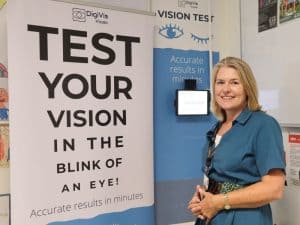
£10 million competition for gene mapping
pharmafile | December 3, 2013 | News story | Research and Development, Sales and Marketing | DNA, UK, cansar, genes, mapping
The Department of Health has launched a £10 million competition to fund businesses working on new technology which will map and analyse genes.
The government has already announced plans to map the DNA code of up to 100,000 NHS patients with cancer and rare diseases by 2017, and the new competition is expected to feed into this effort.
Genomics England, a company wholly owned by the DH, is managing the process which is funded through the Small Business Research Initiative. Deadline for entries is 5 February 2014.
The winners to be announced next March, will receive funding to develop high-tech products – such as new computer code or hardware – to help identify and treat inherited diseases and cancer.
“Our plans to map 100,000 genomes over the next five years will lead to truly ground-breaking discoveries about how diseases work and how we can treat them more effectively,” said health minister Lord Howe. “This competition helps harness the creativity and ingenuity of businesses to help us reach our target.”
Genetic mapping is seen as crucial to understanding diseases such as cancer, and advances in technology means there is a great deal going on in this area.
Public Health England is working on projects which would use whole genome sequencing to tackle infectious diseases.
And oncology database CanSAR – said to be the world’s largest in any disease area and funded by Cancer Research UK – was launched last month. Developed by scientists at London’s Institute of Cancer Research (ICR), it contains 1.7 billion experimental results and will be available free to researchers worldwide.
Researchers from ICR and the Wellcome Trust Sanger Institute also believe that a new method to take the DNA fingerprint of individual cancer cells is uncovering the true extent of cancer’s genetic diversity, and may present new scenarios for treatments.
They have used DNA sequencing to identify a panel of mutations present across thousands of cancer cells in three patients with leukaemia, before testing hundreds of individual cancer cells for each of the mutations to determine their genetic fingerprint and place them into cancer’s ‘family tree’.
In a separate development, a new technique for engineering the human genome – and potentially correcting genetic defects in human cells – has been hailed as an exciting development by scientists.
The Crispr system which is derived from bacteria, could make these ‘edits’ to people’s genetic make-up without creating new problems because of its accuracy, its advocates believe.
Meanwhile volunteers prepared to share their DNA with the rest of the world are being sought by scientists in the UK, who want to build up a database which can be analysed in a bid to provide clues to the treatment of all manner of diseases.
However, participants in the Personal Genome Project will not have anonymity – a factor which throws up a number of ethical considerations.
Adam Hill
Related Content

Addenbrooke’s hospital offers first self-service digital eye test
Addenbrooke’s Hospital, Cambridge, has become the first in the UK to deploy a digital self-testing …

Digital Control Room, a major pharma provider, wins King’s Award for Enterprise
Buckingham Palace has announced that Digital Control Room, a software platform that monitors companies’ online …

Deadly cancers are being financially left behind, new research claims
New research has revealed that some of the UK’s most deadly and prevalent cancers receive …






